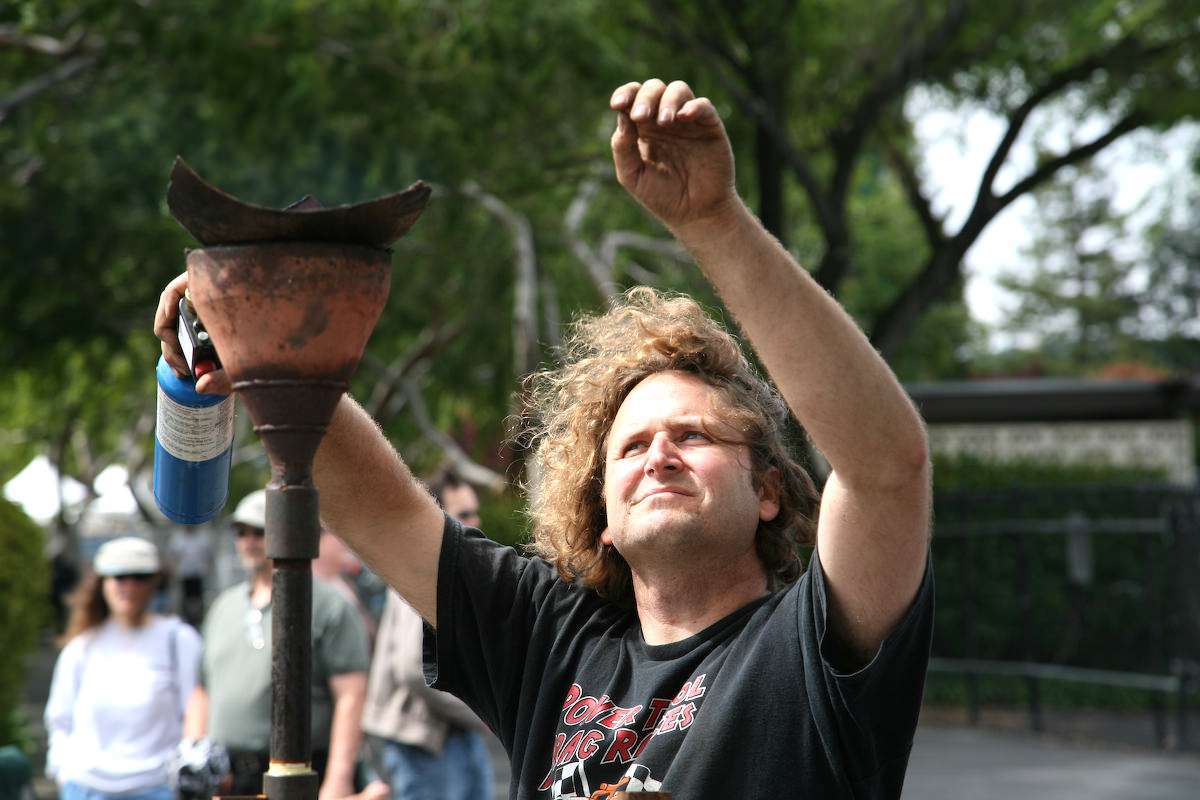How Gasification Beat Berkeley and Broke Big
From fighting with Berkeley city government to a $5 million green-tech company
Here at Reason you can learn about the regulation-bedeviled technologies of tomorrow, yesterday! back in 2008 I wrote a long feature story about Jim Mason's attempts to revive the old power technology of gasification. The spirit behind it was this:

Mason notes that all sorts of human endeavors, from our computing to our food to our transportation, have evolved away from bare resource economizing. They've become instead arenas for play and assertions of identity—or, as Mason likes to think of it, areas in which there is at least some opportunity to impress girls.
"We can turn power into something experiential, expressive, personal," he says. "Not a problem to be solved but an opportunity to be explored, like the cultural movement in food from a thing you eat for raw energy to food as an idiom of pleasure, creativity, and expression, an excuse for gathering friends and family.
"Computing had a similar transformation. It wasn't until the computer became an idiom of personal expression that it exploded into something ubiquitous as clothes on our body.
"So much of our energy dialogue is still about how big corporate players can do better things, or forcing carmakers to do more reasonable things by taxing the bejesus out of oil so the government can smartly fund new research.…There isn't enough faith that things can come up meaningfully from the bottom, that through a culture of hacking and play there could be broad, self-realized solutions."
Mason and his team attempted this in the face of vast and hostile regulatory hassle from the city of Berkeley, unamused with his technological experiments in personalized power generation when it involved techniques that didn't fit their tight and unimaginative regulatory grid. My 2008 feature tells the story.
Mason and his team fought on after my story was written and have so far mostly prevailed, and his energy-hacker ideas and team are now a reasonably big business called All-Power Labs, receiving long press attention from the likes of Fast Company (in a April 2014 feature that reads, to me, quite a lot like my Reason feature in storytelling and focus) and this week at Gigaom.
Excerpts from that Gigagom story:
Now after years of refining the systems, All Power Labs has shipped 500 products and employs 40 workers. The team — a combination of junkyard fabricators, university-trained engineers and solar industry execs — has been gaining momentum, transitioning from their early DIY days into what they hope is a stable and predictable product-oriented energy company.
The group reportedly generates upwards of five million dollars in revenue a year, has been awarded several recent patents around core technology….
All Power Labs also started to get an increasing amount of interest from local entrepreneurs in developing areas in Africa and Asia that needed low cost, off-grid power to run their businesses, had access to abundant biomass (many operated in agriculture regions) and wanted to replace their expensive and dirty diesel generators with something else….
All Power Labs now has Power Pallets operating in 40 countries, including in Liberia using old rubber trees, the Philippines using coconut shells, and in Haiti, gasifying corn cobs. They had to temporarily halt their on-the-ground work in Liberia when Ebola hit.
At that $1.50 per watt price point, a customer that buys a Power Pallet to replace a generator and diesel fuel can recover their costs in 15 months….That price also significantly beats the cost to install solar panels, which can cost $2.27 a watt for large rooftop solar systems for companies and organizations, and $3.60 a watt for residential systems, according to GTM Research. And unlike a solar panel, the Power Pallet can run around the clock, whenever it's got plant waste to gasify.
I went on the road with Mason and some of his cohorts on the "Escape from Berkeley" alt fuel road rally to Vegas back in 2008, and lived to tell the tale.
Mason's earlier adventures in art and tech were told in my first book, This is Burning Man.
